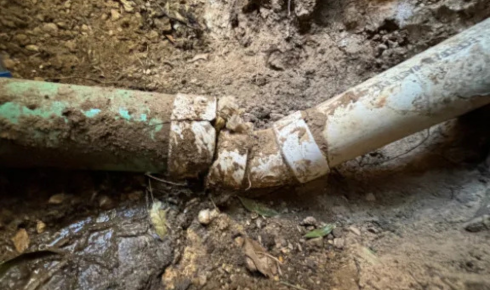Water is just… water, right? It flows out of the faucet, it’s clear, and you don’t really think twice unless it stops working. But let’s be real — the quality of that water and the plumbing that carries it play a much bigger role in your daily comfort than most of us ever consider. And if you’re someone who’s started noticing rust stains, weird smells, or even sluggish water pressure, well — welcome to the club of homeowners who’ve realized maintenance isn’t just a suggestion. It’s a necessity.
Let’s take a closer look at why paying attention to your water — and the systems behind it — might be the smartest thing you do for your home this year.
You Don’t Notice Plumbing Until It’s a Problem
Plumbing is like your car’s engine. Out of sight, out of mind… until something clanks, drips, or bursts. We often assume our plumbing will just keep doing its thing forever, silently and reliably. But like anything that works hard 24/7, it wears down. Pipes corrode. Seals crack. Pressure valves get fussy. And trust me — it’s way cheaper and easier to maintain things before disaster strikes.
Think of plumbing maintenance as the annual physical for your house. A quick checkup from a plumber could catch a small leak before it destroys a cabinet. Or spot mineral build-up in your water heater before it shortens the unit’s lifespan by half. A little prevention goes a long, long way.
Your Water Probably Isn’t as Clean as You Think
Okay, this part gets a little gross. Tap water isn’t always the sparkling mountain stream we like to imagine. Depending on where you live, your water could contain chlorine, iron, lead, pesticides, bacteria, and microplastics. Yum, right?
Here’s the thing: municipal water treatment systems are designed to deliver “safe” water — not necessarily great water. Chlorine, for example, is commonly added to kill harmful pathogens. That’s good. But bathing in or drinking chlorinated water over time? Not so good. It can dry out your skin, make your clothes fade faster, and leave your coffee tasting a bit like a swimming pool.
That’s where chlorine removal filters come into play. They can be installed right where your water enters your home (called point-of-entry systems) or at specific faucets (point-of-use). Either way, they help strip out chemicals that do more harm than good. And if you’ve ever wondered why your hair feels softer at your friend’s house — it might just be that their water is filtered and yours isn’t.
Sediment: The Silent Saboteur
You’d be amazed how much junk is hiding in your water — even if it looks perfectly clear. Over time, tiny bits of sand, dirt, and rust can creep into your plumbing system. You won’t notice it at first. But those fine particles can settle at the bottom of your water heater, clog showerheads, or slowly restrict water flow to your appliances. It’s like cholesterol in your veins… and eventually, something’s going to give.
Using a system designed for sediment reduction can make a dramatic difference. Not only will your appliances last longer, but your water pressure can improve. Your dishwasher won’t need to work overtime, and your washing machine won’t start leaving grime behind in your clothes. You might not see the gunk, but your water system sure does.
You Can’t Afford to Ignore Long-Term Damage
Let’s say you do nothing. You skip the maintenance. You let the filters go unchanged. You shrug off the occasional funky odor or brownish tint. What’s the worst that could happen?
Well… your pipes might eventually clog or corrode, leading to expensive repairs. Your water heater could die prematurely (those things aren’t cheap). Worst case? You might face water damage — which is notoriously sneaky, destructive, and expensive to fix. Not to mention the health hazards if mold gets involved.
The irony? All of this is 100% preventable.
Water Quality Affects More Than You Think
This isn’t just about appliances or plumbing parts. Poor water quality affects your lifestyle in dozens of little ways. Your skin dries out faster. Your hair gets brittle. Clothes wear out quicker. Dishes come out with spots. And yes — even your pets drink it.
And here’s a not-so-fun fact: bad water can even mess with your home’s resale value. Buyers today are savvy. They’ll check for things like water filtration systems, updated plumbing, and whether the home has a water softener or whole-house filter installed. If you’re thinking of selling down the line, investing in your water now pays off later.
So What Can You Do? Start Small
You don’t need to rip out all your plumbing or invest in a lab-grade filtration system. But starting small can make a real difference. Here’s how:
- Schedule a plumbing inspection once a year. Think of it like a check-up.
- Install sediment and chlorine filters, especially if you’re in an area with older pipes or hard water.
- Flush your water heater every 6–12 months to remove buildup.
- Replace aerators on faucets and showerheads regularly (they clog up fast).
- Use whole-house or under-sink filtration for cleaner water throughout your home.
These small steps can extend the life of your plumbing system, improve your water quality, and protect your family’s health.
One Final Thought
We take water for granted because it’s so familiar. But the truth is, your home’s water quality — and the plumbing that delivers it — has a massive impact on your day-to-day comfort, health, and budget. You don’t need to overhaul your entire system tomorrow. But by paying attention, doing some light plumbing maintenance, and making smarter water choices, you set your home (and your peace of mind) up for the long haul.
And next time you take a hot shower and the pressure feels just right? You’ll know why.

